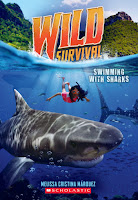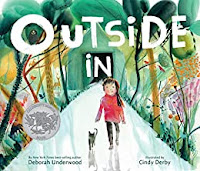My exciting NetGalley experience is that, after having joined the site in 2016, I am actually reading my first book through it. When I didn't see anything I was interested in there 4 years ago, I forgot about it.
This morning I even downloaded the NetGalley app onto my iPad, so I can read books there instead of downloading them to my old Kindle. I've been reading library ebooks through the Libby app (thank you, Beloved Son, for telling me about that) on my iPad, so I know reading on that device is something I like a lot more than reading on Kindle. This is not to demean Kindle. When I come into the present with a new Kindle (the one I have is so old it doesn't have lighting), reading there will be much improved, I'm sure.
What is NetGalley some of you may ask? It's a method for bloggers, reviewers, librarians, and other book people to get early access to digital copies of new books so they can promote them or, in the case of librarians and booksellers, make decisions about purchasing them for their collections or stores.
The publisher of the book I'm reading had to approve me before I could get the book. So I'm feeling like I'm somebody now.
You may be hearing more from me about my NetGalley reading.


























